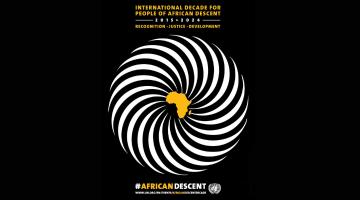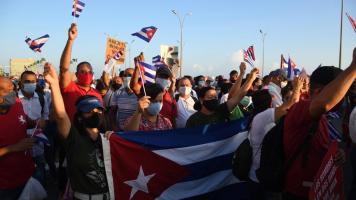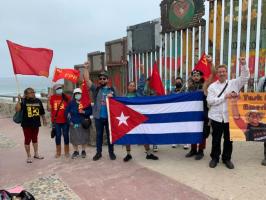José Martí’s account of the 1889 Pan-American Congress offers lessons for last week’s failed Summit of the Americas.
The spiritual origins of the Summit of the Americas, held in Los Angeles, California, June 6-10, 2022, are in the 1823 Monroe Doctrine, with its bullish assertion of US dominance over the affairs of the hemisphere. The bureaucratic origins of the Summit of the Americas are in the series of Pan-American or Inter-American conferences sponsored by the United States since the latter decades of the nineteenth century and organized as a means to assert that dominance--by strengthening commercial and diplomatic ties, encouraging monetary and customs and tariff unity in trade protocols, and promoting banking and financial uniformity throughout the region. The first of these conferences was convened in 1889 in Philadelphia and Washington, D.C. It was attended by politicians, businessmen, industrialists, and bankers from the Americas, and covered in the newspapers of the day by pliant, often sycophantic, publicists and journalists enthralled by the notion of U.S. exceptionalism and eager to promote the cause of US imperialism.
José Martí was certainly not a sycophant nor someone enthralled to US power. The Cuban writer and revolutionary attended the first Pan-American Congress, as well a follow-up conference promoting monetary unity in the hemisphere. He published an essay on it in the Buenos Aires journal La Nación. Martí’s essay on the first Pan-American Congress is at times cerebral and lofty, embellished with historical reference and rhetorical flourish. At times it is biting and acerbic: “It is generally agreed that the (Pan-American) Congress,” writes Martí, “will be nothing but a worthless meeting, or a presidential campaign banner, or a pretext for a subsidy hunt.” In the excerpt of the essay, reprinted below, Martí’s scabrous critique both opens a window onto the past history of the Pan-American conferences and provides a sober analysis for the just-passed spectacle of the Summit of the Americas.
The Washington Pan-American Congress
José Martí
"Pan-Americans," says one newspaper; "Clay's dream," says another; a third, "The right influence"; a fourth, "Not yet"; a fifth, "Steamers to South America"; a sixth, "Manifest destiny"; a seventh, "The Gulf is ours." And still others: "That Congress!" "The subsidy hungers," "Actions against the candidates," "Blaine's Congress," "The bread parade," "Blaine's myth." The parade of delegates is ending and the sessions of the Pan-American Congress are about to begin. Never in America, from its independence to the present, has there been a matter requiring more good judgment or more vigilance, or demanding a clearer and more thorough examination, than the invitation which the powerful United States (glutted with unsaleable merchandise and determined to extend its dominions in America) is sending to the less powerful American nations (bound by free and useful commerce to the European nations) for purposes of arranging an alliance against Europe and cutting off transactions with the rest of the world. Spanish America learned how to save itself from the tyranny of Spain; and now, after viewing with judicial eyes the antecedents, motives, and ingredients of the invitation, it is essential to say, for it is true, that the time has come for Spanish America to declare its second independence.
In matters of such great interest, a false alarm would be as culpable as dissimulation. One must neither exaggerate nor distort what is seen, nor must one remain silent on the subject. Dangers must not be recognized only when they are upon us, but when they can be avoided. In politics the main thing is to clarify and foresee. Only a virile and unanimous response, for which there is still time without risk, can free all the Spanish American nations at one time from the anxiety and agitation - fatal in a country's hour of development - in which the secular and admittedly predominant policy of a powerful and ambitious neighbor, with the possible connivance of the weak or venal republics, would forever hold them. This powerful neighbor has never desired to incite them, nor has it exerted control over them except to prevent their expansion, as in Panama; or to take possession of their territory, as in Mexico, Nicaragua, Santo Domingo, Haiti, and Cuba; or to cut off their trade with the rest of the world, as in Colombia; or to oblige them to buy what it cannot sell, as it is now doing, and to form a confederacy for purposes of controlling them. . .
. . . It is generally agreed that the (Pan-American) Congress will be nothing but a worthless meeting, or a presidential campaign banner, or a pretext for a subsidy hunt. Those who know the benefits of independence, and who cannot conceive of dispensing with it unless absolutely necessary, are expecting all this from the independent nations of America. Will the Gulf islands be admitted to the presence of the new master on their knees? Will Central America consent to divide in half, the Canal blade slicing through its heart, or to unite on behalf of the South as Mexico's oppressor? Mexico is a nation with the same interests, the same destiny, and the same racial background as Central America. Will Colombia pawn or sell its sovereignty? Will the free nations sweep the isthmus clear of obstacles to the juggernaut - those free nations that dwell there and will climb into its car as did the Mexicans in Texas? Through hopes of support against the European alien, because of an illusion of progress that is excusable only in a provincial mentality, will Venezuela, being nearer and more ambitious, stand up for the dominance of an even more dreadful foreigner who announces that its eyes must be, and are, fixed upon the entire American family of nations? Or must admiration for the United States go so far as to lend a hand to the exhausted young bull, like the peasant woman in La Terre?
This blind admiration, because of the novice's enthusiasm or lack of study is the main force in America upon which the policy of control depends in this matter. It is a policy invoking a dogma that needs no foreign supplication in the American republics, for centuries ago, even before entering the innocence of childhood, these republics learned how to bravely repulse the most stubborn and powerful nation on earth. And with no assistance from outside sources, they obliged it to respect their natural strength and the evidence of their abilities. What is the use of invoking the doctrine that originated as much with Monroe as with Canning, to extend its dominion in America in order to prevent foreign domination there and assure a continent of its freedom? Or must the dogma be invoked against one foreign nation only to bring in another? Or does one shake off foreign domination - which has a very different character, different interests, and different purposes - by putting on the appearance of freedom and surrendering it in action? Is it because the poison of loans, canals, and railroads comes with the foreigner? Or does the doctrine have to be crammed down the throats of the weaker nations of America by the nation that has Canada to the north, the Guianas and Belize to the south, and sees to it that Spain is supported?
. . . The free nations of America have reason to expect that the nation whose influence threw the French out of Mexico will rid them of the troublesome foreigner, brought there perhaps because of a desire to raise a barrier against Saxon power in the world's imbalance. . . Walker went to Nicaragua for the United States; for the United States Lopez went to Cuba. And now when slavery is no longer an excuse, the annexation alliance is afoot. Allen is talking about helping that of Cuba; Douglass is going to obtain that of Haiti and Santo Domingo. In Madrid Palmer is gauging Spain's feelings about the sale of Cuba; in the Antilles the bribed Central American newspapers are stirring up interest in the Washington-based annexation plans; in the lesser Antilles the Northern newspapers are constantly giving reports on the progress of annexationist ideas. Washington persists in compelling Colombia to acknowledge its dictatorial rights over the isthmus, and in depriving it of the authority to discuss its territory with other nations. And the United States, by virtue of the civil war it instigated, is acquiring the Mole St. Nicolas peninsula in Haiti. Some people consider "Clay's dream" an accomplished fact. Others consider it advisable to wait another half-century. Still others, born in Spanish America, believe they ought to help further the cause.
The Pan-American Congress will be an illustrious inventory showing in a dignified and energetic way which countries are defending the independence of Spanish America, the fulcrum of the world's balance of power. Or it may show whether or not any nations on a continent occupied by two peopes of different character and objectives can, through fear or confusion of ingrained slavery or by being induced to consent, decrease by their own desertion the indispensable and already too meager forces by which the family of a single nationality will be able to contain, with the respect it imposes and the wisdom it displays, attempts at domination by a nation reared in the hope of ruling the continent. Present-day events are proof of these attempts at dominance, and this at a time when the eagerness for markets on the part of its inflated industries, the opportunity to impose the predicted protectorate upon the distant nations and the weak ones nearby the material strength needed for the assault, and the ambitions of a bold and rapacious politician, are described as reaching a peak.
José Martí, “The Washington Pan-American Congress," La Nación (December 19-20, 1889), translated and reprinted in Inside the Monster by José Martí: Inside the Monster: Writings on the United States and American Imperialism (Monthly Review Press, 1975).



















